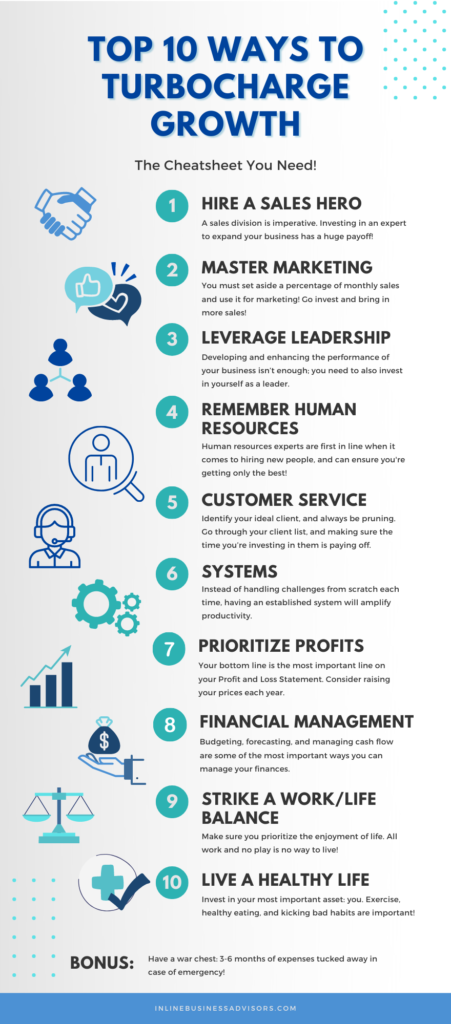“Every great player needs a coach.” That’s a foregone conclusion in sports and one that’s become more common in the entrepreneurial arena in recent years. But why consider business coaching, you ask? Because entrepreneurship isn’t just about numbers and strategies—it’s a maze of decisions, risks, and occasional second-guessing.
Consider Alex, a New York-based techpreneur. Alex launched his startup two years ago. Despite initial success, growth has plateaued. The competition is creeping in, and the weight of making every decision solo is starting to feel like a boulder on his shoulders.
That’s why he recently engaged the services of a business coach. Now, Alex’s worry is whether this business coaching will deliver on its promises.
Sounds familiar? Let’s look at real-world stories and hard facts to see if business coaching is the secret ingredient to entrepreneurial success or just another buzzword in the business playbook.
A Closer Look at Business Coaching
Imagine stepping into a room brimming with opportunities, where every door you see symbolizes a different facet of your business. This is the essence of business coaching, a world where possibilities and growth go hand in hand.
In this dynamic space, business coaching unfolds as a professional partnership. Here, a coach doesn’t just guide but also educates and motivates business owners. It’s akin to having a knowledgeable confidant by your side, someone committed to helping you unravel the intricacies of business management. But it’s more than mere guidance; business coaching is about empowering you. It’s a process where you’re not only offered advice but also equipped with the tools to make well-informed decisions and execute effective actions in your entrepreneurial journey.
Why Do Entrepreneurs Seek Business Coaching?
Entrepreneurs turn to business coaches for many reasons. Here are some of the most common ones:
- Decision Fatigue: Running a business involves making countless decisions. However, over time, this constant decision-making can become exhausting. Here, a business coach can be incredibly helpful. They offer a fresh perspective, assist in prioritizing goals, and bring much-needed clarity to your decision-making processes.
- Need for an External Perspective: At times, being at the helm can lead to tunnel vision. Consequently, a business coach offers an invaluable service – an unbiased, outside perspective. This is crucial for seeing the bigger picture and exploring new possibilities, which might otherwise be overlooked.
- Skill Development: It’s true that even the most talented entrepreneurs have areas where they can improve. Therefore, business coaches focus on identifying and developing these skills. This could involve enhancing leadership and communication abilities or refining strategic planning capabilities.
- Accountability and Motivation: A common challenge for many entrepreneurs is maintaining accountability. In this regard, a coach acts as more than just a mentor; they become an accountability partner. This ensures that goals are not only set but also pursued with dedication and diligence.
- Navigating Growth and Change: Scaling a business or navigating through changes can be daunting. Coaches provide guidance and strategies to manage growth effectively, helping entrepreneurs adapt and evolve their business models.
- Crisis Management: In times of crisis, it can be challenging to maintain objectivity. A business coach can offer critical support during these periods, helping steer the business through choppy waters.
- Networking and Connections: Business coaches often have extensive networks and can open doors to new connections, partnerships, or opportunities that can be pivotal for business growth.
The Core Objectives of Business Coaching
The primary goal of business coaching is to bring about a transformation in both the individual and their business. Coaches work with you to:
- Clarify Vision and Direction: Firstly, a business coach serves as a vital sounding board to discuss ideas, fears, and aspirations. This collaboration assists you in refining your vision into a clear, actionable path forward. Consequently, this clarity enables entrepreneurs to cut through the daily operational fog and focus on their long-term goals and objectives.
- Boost Performance: Additionally, every business holds the potential to operate at peak efficiency. In this context, a business coach plays a crucial role in analyzing your current performance. They pinpoint areas of strength and those requiring improvement. Through this process, they assist you in setting performance benchmarks, introducing effective business strategies, optimizing operations, enhancing productivity, and ultimately driving growth.
- Enhance Decision Making: As mentioned earlier, business coaches offer a fresh, unbiased perspective, often revealing options you might not have considered. They equip you with tools and frameworks to make well-informed decisions, mitigate risks, and strategically navigate business challenges.
- Personal Development: While the primary focus is on business growth, personal development is a significant byproduct. Coaching helps in honing personal attributes like leadership qualities, resilience, and emotional intelligence. This is crucial because personal traits heavily influence business decisions and leadership styles.

Types of Business Coaching
Just as a toolbox contains different tools for different jobs, business coaching offers various types for diverse needs:
- Executive Coaching: Specifically aimed at high-level executives and CEOs, executive coaching primarily concentrates on enhancing leadership development, strategic thinking, and the management of large teams or organizations. In this context, executive coaches play a pivotal role. They focus on nurturing the skills essential for leading organizations effectively, handling high-stress situations, and motivating teams to achieve their best.
- Performance Coaching: This type centers around improving an individual’s performance within the business. It’s particularly useful for individuals with specific performance-related challenges.
- Skills Coaching: Primarily, this coaching focuses on the development of specific business skills and is typically designed for short-term and targeted objectives. For instance, common areas of focus include enhancing sales techniques, bolstering public speaking skills, refining financial management abilities, and advancing digital marketing expertise.
- Entrepreneurial Coaching: Meanwhile, entrepreneurial coaching is specially tailored for startup owners or those venturing into starting a new business. This type of coaching addresses the unique challenges of entrepreneurship, encompassing critical aspects like strategic planning, effective resource management, in-depth market analysis, and comprehensive risk assessment.
- Small Business Coaching: This is for small business owners who need help with the overall operation of their business. Small business coaching helps owners effectively grow their businesses while managing the many hats they wear in their business operations.
Success Stories: When Business Coaching Works
Business coaching has led to remarkable transformations in the lives of many successful public figures.
Eric Schmidt – former CEO of Google
When Eric Schmidt was appointed CEO of Google, he was initially skeptical about the need for an executive coach. “I asked why I would need a coach—after all, I’m much better than everyone else,” he reflected in a past interview. However, the board’s insistence led him to work with the late Bill Campbell, a renowned coach in Silicon Valley.
Schmidt’s time with Campbell was transformative. He credits Campbell with teaching him the nuances of team leadership and corporate management at scale, crucial for Google’s meteoric rise. “The key inside of a coach is they get you to believe that you can do something that you can’t currently do today, and then when you screw up, they guide you to that excellence,” Schmidt shares.
Oprah Winfrey – Media Mogul
“Coaching helps you stop the crazy mind chatter in your head that tells you all the time that you’re not good enough,” Oprah Winfrey famously said. One of the most influential media personalities in America, Oprah worked closely with life coach Martha Beck for many years. Beck’s role in Winfrey’s life transcended traditional coaching, touching on various aspects from personal development to strategic decision-making for her media empire.
Bill Gates – Microsoft
Bill Gates, the co-founder of Microsoft, has been open about the impact of coaching in his life, particularly highlighting the value of receiving external feedback and perspective.
“Everyone needs a coach,” he shared in his 2013 TED Talk. “We all need people who will give us feedback. That’s how we improve.”
Every day, people have similarly found much success through business coaching.
“A client once said to me, ‘You’ve helped me turn on my inner sunshine.’ This has become my raison d’être now!” shared a member of the Forbes coaches council.
“Helping a CEO navigate the pandemic of 2020 through January 2022 was a major achievement,” another shared. “I partnered with him every step of the way, and charting these new norms together taught me the importance of patience and compassion—which are things I focus on more these days.”

The Other Side: Limitations and Criticisms of Business Coaching
While business coaching can be highly beneficial, it’s not without its potential limitations. Here are some:
- Mismatched Expectations: Sometimes, the entrepreneur’s expectations do not align with what the coach offers. This mismatch can lead to dissatisfaction and a perceived lack of results.
- Quality of Coaching: The effectiveness of business coaching heavily depends on the coach’s skills, experience, and methods. Not all coaches are equal, and some might lack the necessary experience or expertise.
- Over-Dependence on Coaching: There’s a risk of becoming too dependent on a coach for decision-making, which can stifle the entrepreneur’s ability to think and act independently.
- One-Size-Fits-All Approach: Some coaches may apply the same techniques and advice to all clients, which can be ineffective due to the unique nature of each business.
- Lack of Tangible Results: In some cases, the results of coaching are not immediately visible or quantifiable, leading to skepticism about its effectiveness. For example, an entrepreneur might not see a direct correlation between the coaching sessions and specific business metrics like revenue or growth, leading to questions about the ROI (return on investment) of the coaching.
- Incompatibility in Coaching Style: Personal chemistry and compatibility in coaching style play a significant role in the coaching relationship. A mismatch here can impede progress.
- Lack of Commitment or Engagement: The success of coaching also depends on the entrepreneur’s level of commitment and engagement. A lack of these can lead to a failure in the coaching process.
Can the Impact of Business Coaching Be Quantified?
Quantifying the ROI from business coaching can be challenging but not impossible. Here’s how one might approach this measurement:
Define Success Metrics
Set clear, measurable goals at the start of the coaching engagement. These could include revenue growth, cost reduction, employee retention rates, or specific personal development objectives.
Example: A company might target a 15% increase in annual revenue or aim to reduce employee turnover by 20% as a result of improved leadership following coaching.
Qualitative vs. Quantitative Analysis
While some outcomes, like financial performance, are quantifiable, others, like improved leadership skills, better decision-making, and increased job satisfaction, are more qualitative. These qualitative outcomes, though more challenging to measure, are equally significant.
Example: An entrepreneur may report increased confidence and better work-life balance. While not directly quantifiable, this can significantly contribute to their overall effectiveness and business success.
ROI Calculation Methods
For quantifiable goals, ROI can be calculated by comparing the coaching cost against the gains made from the objectives. For qualitative goals, surveys or feedback mechanisms can be used to gauge improvements.
Example: If a business invests $10,000 in coaching and sees a $50,000 increase in profits, the ROI would be a significant positive figure. For qualitative improvements, regular feedback from team members or self-assessment tools can help in measuring changes.
Time Frame for Assessment
The impact of business coaching often unfolds over time, so it’s important to set a realistic time frame for evaluating its effectiveness.
Example: Immediate financial gains might not be evident. However, most businesses note substantial improvements in various business metrics over a year.
Long-Term Impact Evaluation
The true value of business coaching might extend far beyond immediate financial gains, impacting long-term business strategy, company culture, and sustainability. For example, the benefits of improved leadership or a stronger team dynamic might show significant returns over several years, not just in immediate fiscal terms but in the overall health and longevity of the business.

Making the Choice: Is Business Coaching Right for You?
The decision to engage a business coach is significant and should not be taken lightly. It requires self-reflection, a clear understanding of your goals, and a commitment to growth and change.
- Assess Your Readiness for Change – Business coaching requires openness to feedback and change. Assess if you’re at a point where you’re willing to be challenged and to alter your approach or mindset. Evaluate your openness to new ideas and constructive criticism. Are you ready to make necessary changes based on coaching feedback?
- Consider the Financial Investment – Determine whether the potential ROI justifies this investment for your business at its current stage. Review your financial situation and consider the coaching fees in relation to the potential benefits for your business.
- Research Potential Coaches – Not all coaches are the same. Find one whose experience, style, and approach align with your needs. Ensure you look for coaches with proven experience in your industry or with the specific challenges you’re facing.
- Commit to the Process – Effective coaching is a two-way street that requires active participation and commitment. Prepare to invest time and effort into the process.
- Evaluate Long-Term Benefits – Beyond immediate challenges, consider how a coach might help with your long-term personal and business growth. Think about where you want your business and leadership skills to be in the next 5 to 10 years and how a coach could support that journey.

Larry Vivola is a successful business coach who coaches entrepreneurs anywhere in the world via Zoom. If he’s not coaching he’s making meatballs and entertaining friends and family!
Free Advice Sucks! Invest in a one-time strategy session and pick Larry’s brain to help solve a pressing problem, discuss an idea, or brainstorm how to give your business performance a Turbo Boost!!! In the end your investment will yield you more money, time, and happiness!

